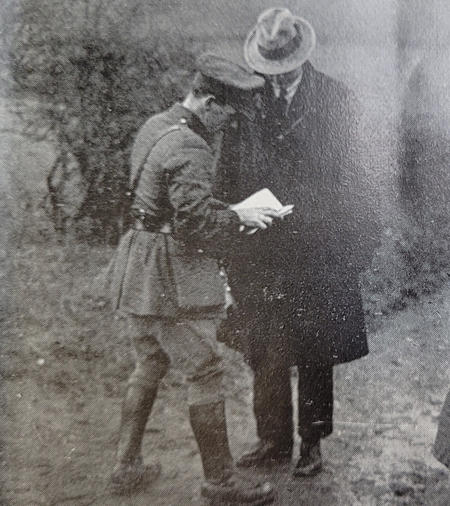Concerns raised at prospect of tariff barrier between north and south
Belfast, 5 March 1923 - There is mounting concern in Northern Ireland at reports that the Free State will be drawing up plans to introduce a scheme of customs and excise duties that will apply to all goods entering the 26 counties from Northern Ireland and Great Britain.
A circular issued by the Commissioners of Customs and Excise to port authorities and others last month stated that a complete separation of customs and excise between the Irish free State and Great Britain would occur on a date no earlier than April 1st, 1923.
The prospect of customs posts being erected at various points along the Free State Northern Irish frontier and through which all goods must pass has been described by the Belfast News Letter as ‘one of the many evil results of Mr. Lloyd George’s surrender to the Sinn Féiners.’
Northern businesspeople and merchants based along the border have voiced their deep unease at the prospect of tariff barriers on the island, with some denouncing it as unworkable and self-defeating. The plan has also been critiqued by leading Unionist MPs in the north.
British Pathé newsreel footage of IRA activity on the ‘Ulster border’ in 1922
Addressing a meeting of the Belfast Wholesale Merchants’ and Manufacturers’ Association in recent days, Sir James Craig, the Northern Ireland Prime Minister accused the Free State government of an error of judgment and of having missed an opportunity to postpone consideration of the issue for twelve months. ‘I hope they are not committed irretrievably’, Craig told the meeting. ‘I hope they will pause before they put a barrier between north and south of this nature’
The Northern Ireland Prime Minister said that partition was nothing, and there was no such thing as partition without a customs barrier being erected between north and south.
The Northern Ireland Minister for Labour, Mr. J.M. Andrews, hit on a very similar message when addressing a Labour Unionist meeting in Derry. Mr. Andrews warned that attempts by the Southern government to create a customs barrier would prove a ‘two edged sword’ which the British government and the Six county administration could wield with disastrous results for the 26 counties.
‘I hope, however, that rumors in this connection are false, for such a struggle would be as unnecessary as it is undesirable. I would much prefer to see the two Governments going forward in friendly rivalry and striving for the welfare of its own part of our island home.’
Mr. Andrews also told his audience that the Northern Ireland government would never give up the city of Derry and that its position within the six counties was as secure as that of Belfast
Concerns about the prospect of tariff barriers are not confined to politicians and businesspeople north of the new border. A motion adopted at meeting of Dundalk business people protesting the hasty setting up of a customs barrier between the Free State and Northern Ireland has since, with minor modifications, been supported at a conference in Dublin where up to thirty representatives of the Chambers of Commerce of Dublin, Cork, Limerick, Dundalk and Drogheda recently gathered.
Mr. George Jacob, of Messrs. Jacob & Co. biscuit manufacturers, described the matter as one of supreme importance to Ireland and would throw trade between north and south into chaos. Mr. Jacob asked for more time to be given to consider the matter before forcing a change such as this.
Mr. Carroll of the Dundalk tobacco firm said the customs plans were unworkable and that it was a shocking state of affairs that businesses were to be left without a chance to make arrangements for the change.
Although ultimately a matter for the President and Minister for Finance, the Free State’s Minister for Home Affairs, Mr. Kevin O’Higgins, has expressed surprise that there is any shock at news of the customs move. It was, he remarked, a natural consequence of the treaty position.
[Editor's note: This is an article from Century Ireland, a fortnightly online newspaper, written from the perspective of a journalist 100 years ago, based on news reports of the time.]





















